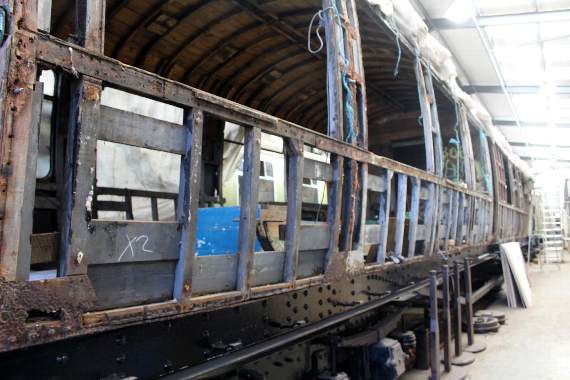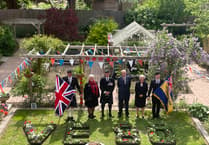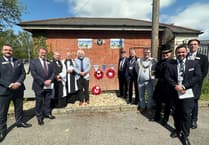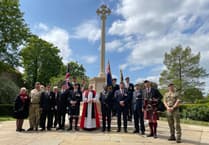OVER the past 18 months, as part of the Heritage Lottery Fund-supported Canadian Pacific project run by the Watercress Line, two researchers have been tracing individuals with memories of an important period in history.
Between 1947 and 1970 nearly 500,000 people emigrated from the Caribbean to the UK by boat and then by train to London, many arriving at Southampton to begin their new life in the UK in what is known as the ‘Windrush era’.
That train journey was their earliest experience of this country and many of the newly-arrived passengers took a train hauled by a Bulleid-designed locomotive like the Merchant Navy class Canadian Pacific, currently being restored by the Watercress Line.
The accounts revealed to the researchers are based on extensive interviews and they reflect the immense variety of life stories that have emerged during the project.
These vivid memories of individuals tell of the experiences during their journey by ship, lasting several weeks and their first impressions of the strange and cold country they arrived in.
The journey to London was often the longest train journey the informants had taken up to that point and provided some of their first experiences in their new surroundings.
The Watercress Line’s rolling stock played an important role in this significant moment in British post-war social history.
Rosalind was born in Dominica in 1958. Her parents sent for her in 1966 and her impressions of her journey were of getting on a cruise line that was “the biggest boat I’d ever seen in my life... so big it was like an island”.
Her first feelings and thoughts of being in Britain were of “the cold, it must have been winter as it was very, very cold and I was not dressed for the weather.”
Anne describes her journey from St Kitts on the SS Montserrat: “When I first saw it... it was such a big boat, so much was going on... I spent my time in the rope house. They used to have big parties and dances there. All the people on the boat were Caribbean people.
“I took the train up to Archway. I don’t remember much about the journey on the train. I was more concerned to get to where I was going. I was thinking ‘look where I am, in a big country, dragging along in this train. My memory is the train was coloured red.”
She goes on to describe living and working as a care assistant in Archway, which she calls “home”. She also talks of life in St Kitts.
Jasmin describes herself as “different from the others” and the subject of discrimination in her home country – born in Jamaica with Chinese descendants, she was a so-called “black headed Chinese”.
Her boat journey in 1956 at the age of six was largely spent below deck, feeling hungry and alone with her younger brother. She says they docked at Southampton and took the train to Waterloo with their father.
“I don’t remember too much about the train. The first thing I remember about London was the snow. I had never seen it before. My father had to pick me up and carry me, because I was frightened of it.”
She goes on to describe the tiny attic room they lived in with their parents, their parents’ work and her experiences at school.
Ruby, also Jamaican born, came to England in 1960 aged 18. She recounts her memories of the train to Victoria: “I remember how strange it felt to see smoke coming out of chimneys, heavy like fog. My mother was a dressmaker.
“I was glad to leave Jamaica, as it gave me freedom from the restrictions of my very strict mother.”
She goes on to describe her work at Charing Cross hospital and impressions of London life: “The thing that struck me the most when I arrived in England was how horrible the houses looked, and seeing people kiss in the street, especially interracial couples.”
Mr Bholdoo left Grenada in 1961 and took a train from Southampton to Waterloo. He said: “I remember I got on the train, the train started, and a man came along with a plate of sandwiches. The sandwiches were thin, white bread. We needed bigger sandwiches because we were hungry. That’s what I remember.
“When I got to Waterloo, my sister and her husband met me. I was so hungry. There were people selling burgers. I remember I ate a burger. My first meal in England. I don’t remember so much about the journey, all the time I was praying that I would get where I was going, that’s what I remember most. The journey on the boat – well, I was sick. I heard from someone in England at the time, just before I emigrated. He said ‘don’t come, there’s ice and snow’.”





Comments
This article has no comments yet. Be the first to leave a comment.